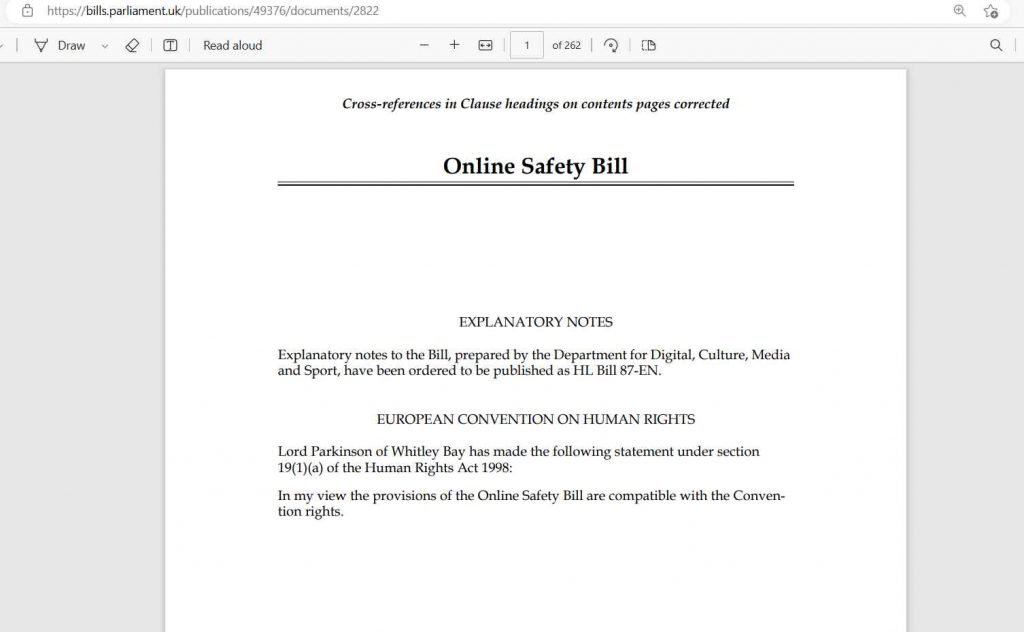WhatsApp, owned by Meta, has threatened to quit the United Kingdom in the event that the government adopts the Online Safety Bill, claiming that the bill would effectively remove its encryption mechanisms. The firm, along with its competitor company Signal and five other applications, said that, in the event that the bill is signed into law, users would no longer be secured by end-to-end encryption. This kind of encryption assures that no one other than the receiver can read any communications that have been delivered.
The “Online Safety Bill” was initially intended to criminalize material inciting self-harm that was posted to social media platforms like Facebook, Instagram, TikTok, and YouTube, but it was later altered to concentrate more generally on illegal content relating to adult and child safety. The original proposal was to prohibit content promoting self-harm posted to social media platforms like Facebook, Instagram, TikTok, and YouTube. In spite of the fact that government representatives have said that the measure would not prohibit end-to-end encryption, the messaging applications have stated in an open letter that “The bill provides no explicit protection for encryption.”

It goes on to say that if it is implemented in its current form, “could empower OFCOM [the Office of Communications] to try to force the proactive scanning of private messages on end-to-end encrypted communication services, thereby nullifying the purpose of end-to-end encryption and compromising the privacy of all users.” According to WhatsApp and Signal, OFCOM is a government-approved institution that is entrusted with regulating broadcast, telecommunications, and postal services in the UK. However, if the bill is passed, OFCOM might misuse its ability to scrutinize individual chats and spy on users without their knowledge.
“In a nutshell, the bill poses an unprecedented threat to the privacy, safety, and security of every citizen of the United Kingdom and the people with whom they communicate around the world, while also providing encouragement to adversarial governments that may seek to draft copycat laws,” Signal has said in a statement on Twitter that it will “not back down on providing private, safe communications,” in response to the open letter that encourages the government of the United Kingdom to rethink the way that the law is presently drafted. Both businesses have said that they would stop supporting the applications in the United Kingdom rather than take the risk of lowering their present encryption standards. They have stuck by their statements.
WhatsApp is regarded as the number one most-used encryption app, having garnered more than two billion monthly active users in the previous years. In light of the fact that WhatsApp is used all over the world, the company believes that its fears are well-founded. It explains in the letter that it is impossible to continue providing end-to-end encryption services while the UK government is expanding its monitoring of the applications. In the letter, WhatsApp and Signal said that they are not the only ones that have issues over the UK Bill and that these worries are shared by others. “The United Nations has issued a stern warning, stating that the attempts made by the United Kingdom’s government to enforce backdoor restrictions represent “a paradigm shift that presents a variety of major difficulties with possibly disastrous implications.”
The Online Safety Bill aims to address what lawmakers consider a major concern of child abuse and child sexual abuse material going unregulated in the UK. It also targets pornographic deepfakes, criminalizes encouraging self-harm, and requires social media sites to more strictly enforce their terms of service. The law makes it clear that any communications that violate its criteria would be subject to monitoring by the government. Paying a kid for sexual services, instigating the development of material depicting child sexual abuse, or organizing or acquiring material depicting child sexual abuse are all examples of these types of crimes.

Information security specialist, currently working as risk infrastructure specialist & investigator.
15 years of experience in risk and control process, security audit support, business continuity design and support, workgroup management and information security standards.











